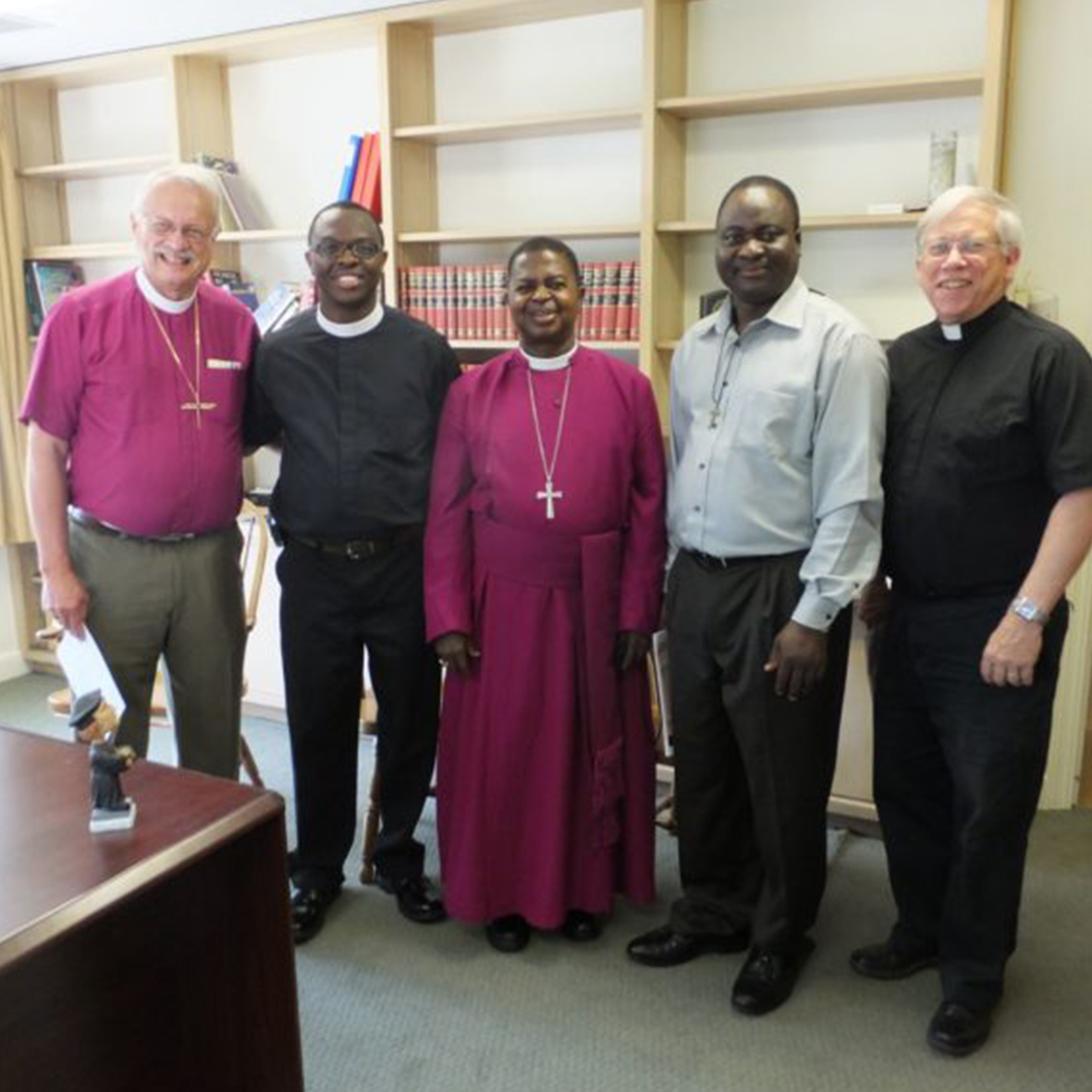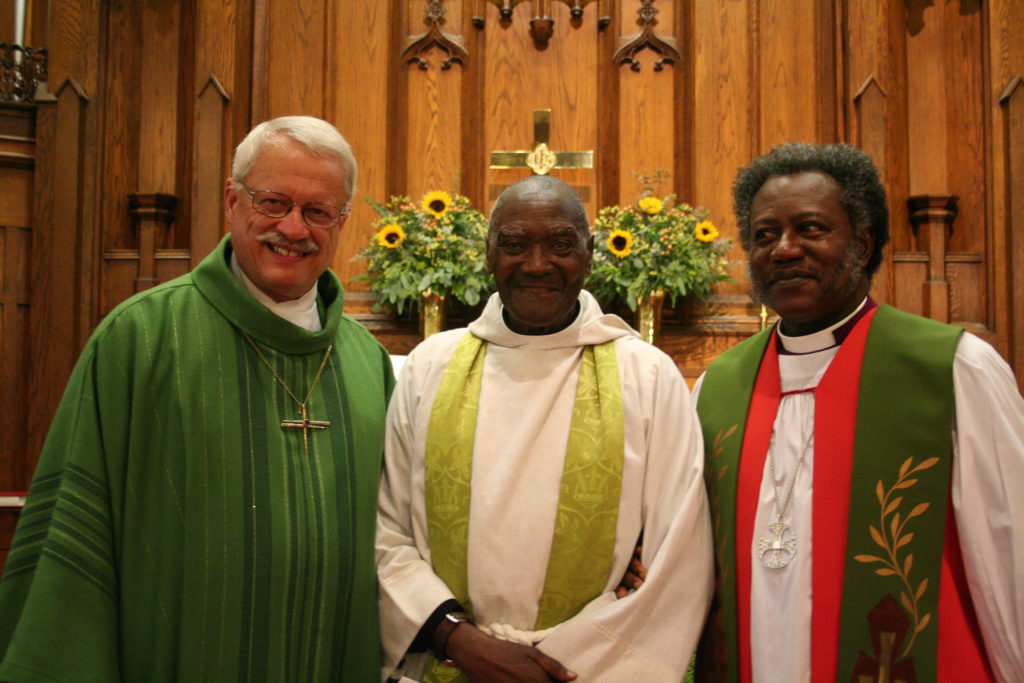Caring for pastors is one of the best ways of supporting churches. The various dispositions of an ordained person are challenging, especially in our contemporary world, where a clergyman must learn to manage both power and powerlessness. The clergyperson is faced with moments of joy and challenges, first is the understanding of himself as an agent of healing and reconciliation in a broken and hurting world. The second is the wisdom to distinguish between the role of an agent and that of the Messiah; an ordained person must be careful not to assume a messianic position. Also, the clergyman is faced with the challenges of his/her own family and matrimonial home. While they have the responsibility of raising their own children in a Christ-like manner, they are also a father/mother to many young people in their community. Lastly, he must learn to cope with associates, who can prove to be either foes or friends. In all these, the ordained must be able to proclaim the Pauline phrase “I can do all things through Christ who strengthens me.” Having learned the wisdom to abound in the time of plenty and to abase during the time of lack, Paul declared his ability to do all things through the strength supplied by Christ. (Philippians 4:12-13).

My passion for pastor’s welfare came from my childhood exposure to the ordained life. I grew up in the seminary, Immanuel College of Theology Ibadan, Oyo State Nigeria, living with my brother who was then a lecturer. For over 12 years, I was raised and nurtured within the company of seminarian, lecturers and their families. Having lived with a disciplinarian priest who has risen from the position of a catechist to a bishop, I have witnessed both the splendor and the ordeals of the ordained. Therefore, as I decided on answering God’s call, I was challenged to make pastoral care (especially for pastors) one of my priorities. My experience has pointed to the fact that spiritually-healthy pastors contribute a great deal to promote spiritually-healthy churches and so is the contrary. It is with this passion that The Voice is advocating for a pastoral care and counseling department in every diocese.
As said in the first paragraph, the expectation of the parishioners on the clergy is unthinkable; they are both the priest and a father/mother to all, he/she is the chief adviser, the counselor and the preacher. A priest must master the liturgy and excel in the skills of an administration. The priest must prepare sermons; arrange premarital counseling and wedding services. The priest must perform funerals both for the aged and the tragic loss of a young fellow. The priest must live a holy, humble and honest life. To his wife/husband, the priest must be loving, romantic and keep the fire of their love burning. To his/her bishop, the priest must be loyal and be sound, both in spirit, soul, and body. To his/her children, the priest must be a hero/heroine, and to his/her God, the priest must be faithful even to the point of death.

These expectations and many more put the clergy person in a vulnerable position where they are prone to many temptations. First is the temptation of trying to please everyone and seeing himself/herself as another messiah. The failure of not accomplishing the ‘messianic concepts’ often leads to frustration. This can further lead to restlessness, busyness, and many hypocrisies. When the clergy person is overburdened, their mind is congested and unavailable to God. They tend to become mostly eventful with people and programs. This consequently results in pride, arrogance and the cravings for power. Secondly, when the clergy person is too busy, he/she is emotionally absent from their spouse (the help mate given by God). This leaves them to become vulnerable to all kinds of predators, including the lust of the flesh and the love of money, which the scriptures call ‘the root of all evil.’ Often, all these have led to what Paul described as a shipwreck of faith and ministry. Many clergies are victims and perpetrators of sexual immoralities, impregnating members and having children at various stations. Some are financially bankrupts, leading to the unnecessary claiming of funds and misappropriations of church’s money. Envy, anger, and bitterness have led some to the
maltreatment of priests serving under them, cursing and fighting with parishioners and their staffs. Pride and arrogance have also led others to be disrespectful to senior priests. Lastly, many have become hypocrites, backbiting others and paying lips and eyes services to the bishop, so that they can be “preferred” to the hierarchy. Unfortunately, no one is immune from this wreckages; therefore, Paul warns the Church in Corinth, that anyone who thinks he or she is standing should be careful lest they fall. (1 Corinthians 10:12).
At The Voice Pastor’s Care department, we believe that a big fall can be avoided if the causes of tiny slips are not overlooked. For this reason, we are advocating for an atmosphere of honest sharing, trustworthy debriefing and pastoral care for the clergy in all of our dioceses. Pastoral care in this context is “intentionally doing for the clergy what the clergy has been doing for the people” – listening and caring for the souls of the ordained without judgment or prejudice.
We are committed to the implementation of these through our IESSP curriculum and training. Please contact us to learn more.
Copyright © 2024 The Voice